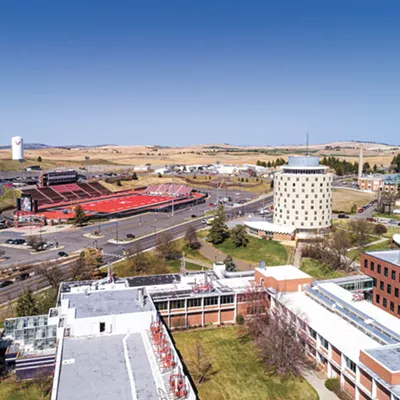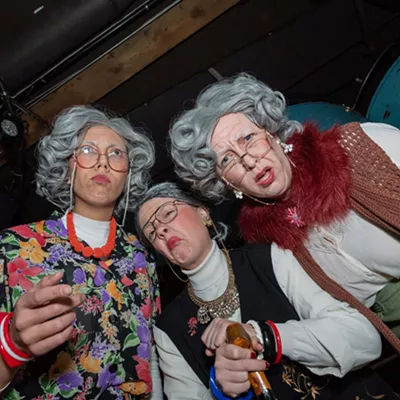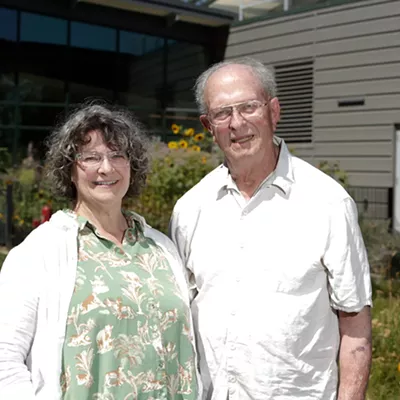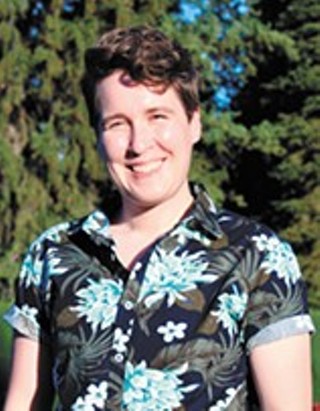This year's graduation season is clearly different than any we've encountered in recent history. Typically, I'd be out with the rest of Eastern Washington University's staff and faculty, high-fiving and celebrating the senior class of 2020 as they walk through the pillars near Showalter Hall, signifying their transition from college students to people about to embark on adventures great and small.
My work as a career counselor at EWU has significantly changed the way I perceive how humans operate. Many of the seniors graduating into this new, techno-facilitated world spent time in our Career Center asking tough existential questions: What do I want to do with my life; what are my core values; how can I be both happy and supported in my future endeavors? Without fail, though, the vast majority of students I serve, when asked, "what is most important to them in their professional lives," say that they want to help other people. And they declare this sentiment with the radical assurance that they are saying something unique and qualifying about themselves. Some want to help others as occupational therapists; others want to be teachers, inspired by the people who helped them in high school. Others want to go into social work and advocate for foster children. Some want to work in recreational therapy for the Special Olympics.
It is easy to believe that human nature is selfish and without critical thought. A quick scroll through your news feed often feels like an assault on, and argument against, the human capacity for empathy. But my students consistently challenge that belief that we are hard-wired to help only ourselves.
In an interview with the Television Academy Foundation in 2013, Fred Rogers relayed a story about how his mother invited him to look for the helpers during any kind of catastrophe, because "if you look for the helpers, then you know there's hope." He worried that the media didn't adequately highlight the helpers when doing news stories about disasters. His words, memefied, often circulate in times of tragedy. I've been thinking about them myself as, one by one, countries around the world respond to the COVID-19 crisis, with mixed results. One of the features of this moment in quarantine is that we are separated from each other — making it challenging to "look for the helpers" in real life because most of our information now is mediated by the screens that filter and shape the narrative of this disaster. My response is to remember my students — and what they have taught me about being helpers. Even if you can't leave the house, or are quarantined by yourself, it is entirely possible that the helpers you are supposed to look for are right in front of you. And their acts of kindness and grace, precisely because they are so ubiquitous, will never make the nightly news.
Since March, I've witnessed many of these unsung helpers contribute to the goodwill of their communities. People who have given shelter to those who desperately need it. Neighbors bartering baked goods for paper products. Friends who check in with others via Zoom, text, or calls to ensure that those isolating alone feel connected to the outside world.
When Washington state was about to go into lockdown, I needed to get the internet for my apartment so that I could telework. I stood in the store, nervously keeping my distance from others, watching the employees behind the counter stay calm as they helped person after person get the technology that would enable working, learning, and staying connected as we rolled toward an uncertain, social horizon. Some customers were agitated, taking it out on the representatives. The person who helped me, though, took it all in stride, even offering his private work phone number to ensure that if I had any trouble connecting the equipment at home, I wouldn't have to navigate the corporate switchboard. A small act that I didn't report to KREM news, but helped nonetheless in a fraught time.
Likely, you have also witnessed similar small acts of kindness. And even likelier, given what I know about how people operate now, you have provided kindness to others. When broader systems fail, when governmental infrastructure doesn't support us in the way in which we expect it to, then it will be up to each one of us to find the helper within and apply a countervailing force to balance the world for good. Even though I can't officially, in real life, say goodbye to the class of 2020, I have no doubt they are about to embark into the world, committed now more than ever to that which they said out loud in my office, becoming the helpers that Mr. Rogers wanted us to witness. ♦
Aileen Keown Vaux is an essayist and poet whose chapbook Consolation Prize was published by Scablands Books in 2018.























